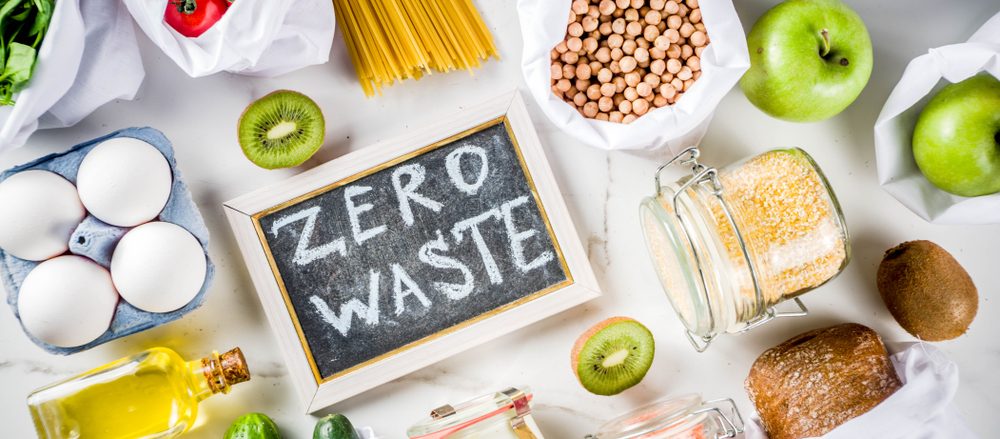Now more than ever, it is important that we reduce the amount of food waste we produce. See if you can incorporate any of the following tips below to help you reduce food waste and save yourself some pennies!
Fruit and Vegetables
Often the food product with a shorter shelf life, but there is so much that can be done to use up leftover fruit and vegetable and help you reach your 5-a-day!
- Pack your freezer with any fresh fruit that you may have brought too much of. Bananas and mango freeze well and can be taken out defrosted and used in a smoothie or blended into homemade ice lollies!
- Berries and apples starting to go soft? Make them into a crumble topped with oats! Or freeze on a loose tray and bag them up to top your porridge or yogurt.
- Any left-over herbs or salad leaves? Chop them up and place into ice cube trays with water – they can then be taken out and added to so many dishes like sauces, soups, and stews. Or alternatively make a pesto.
- Lettuce or celery looking sad? Chop the ends off first and stand in a glass of cold water to help them back to life.
- Not all fruit and vegetables need to be peeled – just wash and for root vegetables scrub off any soil with a vegetable brush – this will help save time and the skin of vegetable and fruit will help with your fibre intake e.g., carrots and potatoes.
- Salad leaves going off in the fridge quickly? Place a piece of kitchen roll in the bag to absorb the excess moisture and fold the top of the bag over with seal with a clip.
- Do not store your mushrooms in airtight containers – they need airflow – put them in brown paper bags. Placing them on a windowsill with the gills up also help to boost their vitamin D content.
- Make a ‘fridge’ curry – chop up any leftover vegetable and add a tin of mixed beans and curry paste or seasoning and serve with brown rice.
- If your tomatoes have gone too soft – mash them down and add fresh herbs and fresh or frozen vegetables to make into a homemade pasta sauce.
- Buy frozen vegetables is just as good as fresh as they retain their nutrients when frozen.
- Fruit such as apples, pears and citrus fruits actually keep longer in the fridge whilst pineapples and bananas prefer the fruit bowl.
- Fruit such as apples, pears and citrus fruits actually keep longer in the fridge whilst pineapples and bananas prefer the fruit bowl.
Meat and Fish
- Any left-over meat from a roast dinner can be adapted into another meal:
- Beef or lamb can be minced for shepherds or cottage pie or be used in spaghetti bolognaise – just add lentils to bulk it out, or in a chili just add a tin of mixed beans.
- After a roast chicken you can strip this down and use the left-over chicken in salads, sandwiches soups or a pilaf. The cooled chicken frame can also be put in a pot with water, onion, carrot, and celery to make chicken stock. These can be put in ice cubes trays and frozen for a use another time.
- Consider buying frozen fish – it can often be cheaper than fresh and can be kept in the freezer until needed.
- Did you know that cooked fish can be stored in the fridge for up to three days? It could then be made into fish cakes using potatoes.
Dairy, Bread and Eggs
- Brought too much milk – it can be frozen – just make sure once it is defrosted to give it a good shake. It is always worth keeping a small pint of milk in the fridge in case it snows!
- Too much yogurt? Add some fresh or frozen fruit on top to make yogurt bark. Line a large baking tray with greaseproof paper and spread the yoghurt over the paper in an even layer. Add your chosen toppings, distributing them evenly over the yoghurt. Freeze for 2 hours or until solid. Carefully peel away the paper, then break the yoghurt into shards and place in a freezer bag. Seal and keep frozen for up to 3 months.
- Bread gone stale? It can be improved by a spritz of water and then 5 minutes in the oven to rehydrate them or alternatively blended into breadcrumbs which can be kept in the freezer.
Cupboard Essentials and Leftovers
- Keep a list on your phone or on the fridge of what in in the fridge, freezer, and cupboards so you know what needs using up. This can also help when writing your shopping list.
- Near empty jars of condiments such as mustard can be used to make dressings by adding olive oil, vinegar, and a few herbs (fresh or dried) – just place it all in the container and give it a good shake.
- Turn left over pasta from the night before into a cold pasta salad for lunch – just add a few salad leaves and tomatoes etc.
- Out of date nuts and dried fruit can be used a bird feed in the garden.
- Leftovers is great to pop in the freezer if you know they won’t be eaten later in the week.
- Make sure your fridge is set at the right temperature – it should be 5°C or less.
- Try serving meals at the table from large dishes rather than plating up before hand – once food is on plates it is more like to be wasted if uneaten.
Wrote by Gemma Mason.


